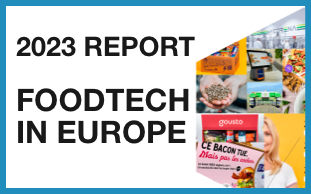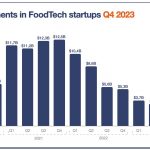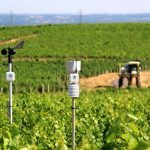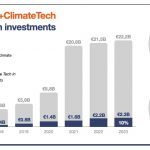What can we expect for 2024?
First, let’s rewind: how good were we on our 2023 predictions?
Here are the predictions we made last year. It’s not too bad in such times where seeing a few months ahead can be much more complex than having a 5 to 10-year vision:
We were right in predicting that:
- Plant-based brands would continue to be affected by a downturn (both for large and small brands) as the political debate gets hotter for the whole alternative protein ecosystem.
- A shift of interest towards B2B (ingredients such as fats or flavours) for alternative proteins.
- Decarbonisation would be one of the hottest things in 2023, in areas such as carbon credit marketplaces, carbon accounting, bioinputs, and methane-reduction schemes.
- Investments would keep drying up.
- Urban/vertical farms would have a challenging year, with only tech-focused companies surviving.
We were almost right in predicting that cellular agriculture would reach US restaurants (a couple of companies received regulatory approval but have not yet started selling their products).
And, we were wrong in predicting that quick-commerce would reach profitability through concentration (it is rather a disappearance in developed economies while a slow development in developing countries).
Now, here are DigitalFoodLabs 5 top predictions for 2024:
1️⃣ Investments will keep declining, at least for the first half of the year. However, we expect a rebound in the US by the end of the year.
Tech, and then FoodTech, don’t live in another world. Investments are affected by the overall state of the economy. If interest rates are cut as expected, the reward to invest in risky assets will become attractive again.
Two factors will soften this decrease:
- the appetite for AI and sustainability, where it is still relatively easy to raise funds
- funds still have a lot of money to invest, mostly in young, early-stage projects.
In a word, it will still be a very complicated year for startups raising series A and B, notably if they don’t have rock-solid tech or profitable outlooks.
2️⃣ Many well-known startups will shut down.
Rumours about this or that startup being on the verge of bankruptcy are rampant. At the same time, downrounds (startups raising money at a lower valuation, often meaning that investors are taking control over founders) are multiplying.
Looking at DigitalFoodLab’s 2023 mapping of unicorns, I already see five startups that shouldn’t be there in our 2024 update and ten more that will have a hard time finishing the year.
This could have severe consequences for the overall ecosystem, as these companies are often the emblem of their respective categories, national ecosystems, and investors (we also expect some of them to disappear after a series of bad bets).
Beyond unicorns, this will also affect many other startups. On the positive side, this also means that for deep-pocketed companies, there is an opportunity to acquire valuable assets at a low price.
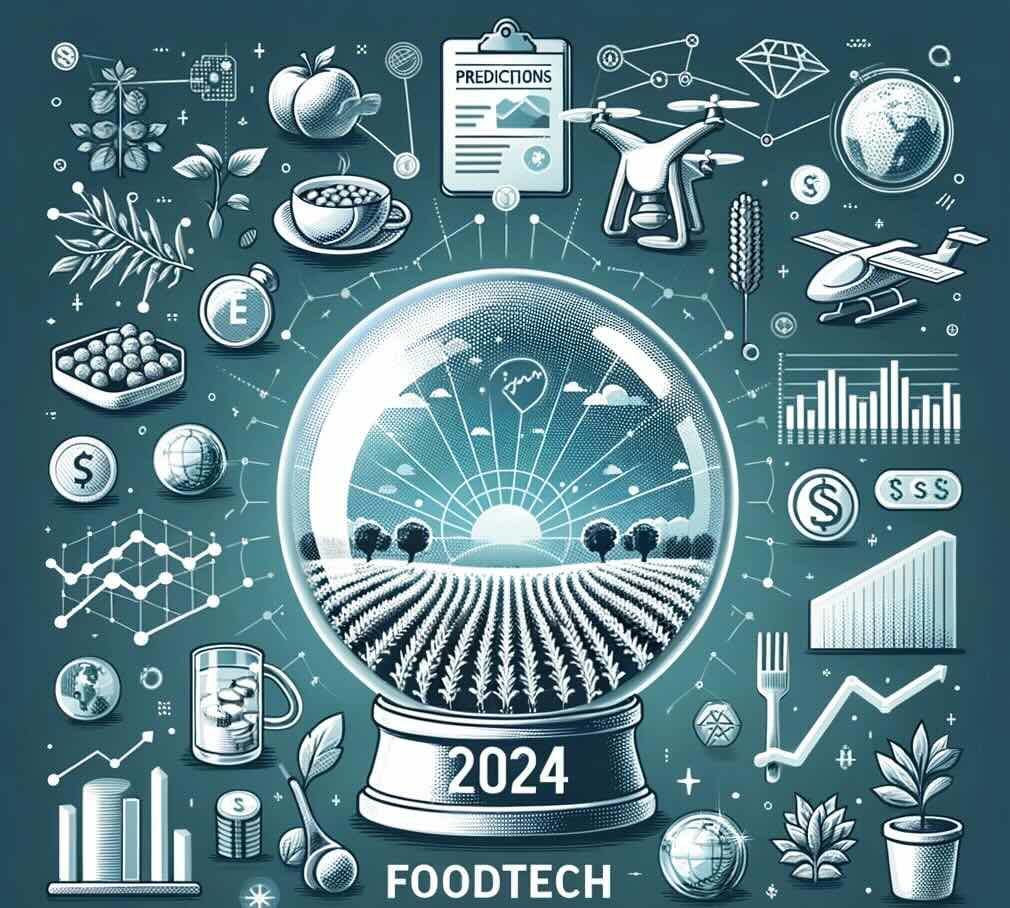
3️⃣ While plant-based will bounce back, we expect a growing distrust for more advanced technologies.
As for investments, plant-based sales declined due to inflation. Now that things are returning to normal (in the US, at least), we expect sales to bounce back in 2024.
However, for other technologies (precision fermentation, cellular agriculture), we think that 2024 will be much more challenging. Many startups have overpromised, and now investors are wondering when they will have a return on all the billions invested. So, we expect:
- market concentration through a wave of failures or acquisitions between startups
- a renewed focus on B2B and hybrid products (such as combining plants and cultivated meat)
Again, it means there are many opportunities for acquisitions by established legacy players.
4️⃣ 🍫 A growing divergence between the actions of new and established brands:
- A focus on health-oriented food products, on one side, increased by the hype around Ozempic and other diabetic-turned-weight-loss drugs. Large food companies will mostly drive this, and we already see many examples of new products and brands launched. Beyond ingredients promoting health, which are, for the most part, 3 to 5 years away from reaching the market, we expect an uptick in the interest in glucose and microbiome.
- A growing wave of indulgent food products is launched by startups and targeted at GenZ. It almost seems like a generational reaction to the wave of Millennial-targeted brands promoting health. While we have observed a surge in the number of these products focused on indulgence in the past couple of years, we expect them to increase in number and significance in 2024.
5️⃣ 🤖 While Artificial Intelligence (AI) remains a key topic, we don’t expect many tangible applications. However, there are three areas where we still deserve a lot of attention:
- Marketing: here, generative AI (ChatGPT) can be used to speed up current processes
- Order management for foodservice (restaurants) and stores: AI can have a massive impact on predicting orders and reducing food waste.
- Selecting micro-organisms and scaling production for alternative proteins (notably precision fermentation) and, in some instances, for agriculture.
Finally, our keyword of 2024 is scaling. Indeed, many innovations are reaching a stage of maturity where the main question is not “how to do it” but “how to scale it” (and eventually “is there someone ready to buy it (at this price)”). This will be notably the case for:
- decarbonisation for carbon credits, bioinputs, or methane-reduction processes
- alternative proteins (as mentioned above)
In short, as you can see, I am not over-optimistic for the year, but that’s what predictions are about; otherwise, it would just be a wishlist. Let us know if you have any suggestions or things you would add to this list!

